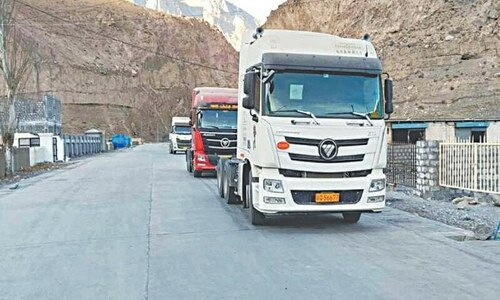THIS is apropos of Sakib Sherani’s article ‘Purple bamboo’ (Jan 25). When power structures and state institutions cease to interact with the poor, as coping mechanism the poor start coming together to overcome the feeling of loss of self-worth, discrimination and inequality.
This process of ‘coming together’ is in the offing in Pakistan. If the ruling elite remains in sheer oblivion, its impact will change inter-group economic and social ties, providing impetus or incentive to break the status quo. The power groups need to draw lessons from the chain of events and the way it happened in the Arab countries. While the outside world sensed the enormity of the situation, the ruling class continued in a state of denial till the time crowds stormed offices and police stations.
As early as in September 2010, a Telegraph headline reported fears of ‘social explosion’. In 2011, Le Monde referring to the frustration caused by ‘elite-capture’ warned “protesters aren’t asking the government to find them a job, but denouncing the lack of transparency and justice in the labour market”.
Democracy without delivery — merely as a set of procedures — is not foolproof against the possibilities of elite capture and exploitation. Safeguards to manage and pre-empt possibilities of exploitation, according to the French Commissariat General du Plan, is “a set of social processes that help instil in individual the sense of belonging to the same community and the feeling that they are recognised as members of the community”.
It is imperative to reintegrate poor and ‘excluded’ Pakistanis for unleashing their ‘sense of belonging’. Living during times of manifold conflict in the 15th century, Ibn Khaldun regarded Asabiyah — the solidarity of small groups — as the power to promote broader social integration.
Four centuries later, Emile Durkheim referred to two types of solidarity that he observed emerging through transition in Europe. The first was primitive societies, marked by mechanical solidarity and a strong collective ethos based on relatively homogenous pattern of work and life.
The second was advanced society, in contrast with its complex division of work marked by solidarity based on merit, respect for different roles, and the need for moral regulation.
It was the latter that replaced the former. We have reason to expect the same in Pakistan. The incentive for such a change may come from the benefits that accrue to an individual through his participation in groups and need for an individual to invest in these relations.
ALLAH NAWAZ SAMOO Nagarparkar













































